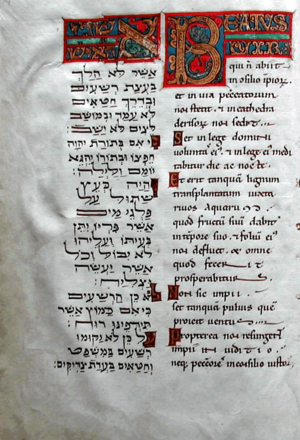| Last Judgement, Triptych (Photo credit: Wikipedia) |
I don't plan to go into any kind of theology about judgment in Christianity, as it's been covered before. And the starting premise is a continuation of the aforementioned post split into different parts, in which the imagery of God as Prophetic Authority is being used to explain what we could roughly compare to the concept of karma. That is, for the all the focus on what God is or isn't going to do to people, a more interesting and potentially useful way of looking at it is that judgement, resulting in a blessing or a curse, is about what people are bringing upon themselves.
The trick here is to put aside the Prophetic Authority image when you do so, or else you get into questions of theodicy. Now if you like that kind of thing, go for it. But otherwise, when thinking of God's judgement in the Bible, de-personalize it and think of it like a law, a law of cause and effect, a law of karma.
This I think helps relieve a good bit of the uncomfortable and often unnecessary discomfort with the way judgment is interpreted by contemporary readers, and it takes a lot of the wind out of the sales of the kind of fundamentalists who revel in a stern and punishing God and who get a thrill in vicariously judging others in the name of God. God isn't sitting on a throne passing judgement; rather, the universe manifests as an aspect of God, with certain natural "laws" or rules of cause and effect. Those who don't understand them or care about them are going to have more problems as they face the consequences of their ignorance or disregard. It can also be compared to being out of harmony with the Tao.
This next change in perspective can be added to the one above or practiced separately. In the tradition of the Desert Mother and Fathers of the early Church, and likely additional groups Christian and otherwise, there is a practice that I am going to co-opt and modify here. The enemies of the Bible, the Pharaoh of Exodus, the ancient Kings of Canaan, and others are taken to represent unvirtuous thoughts and feelings such as terror, hatred, greed, indifference to the suffering of others, and so on.






